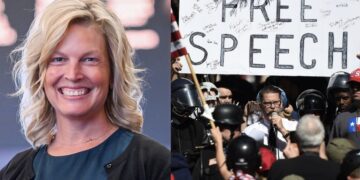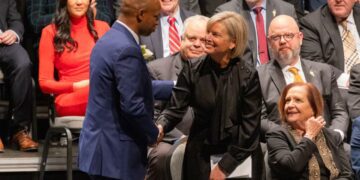Scalia Speaks: Reflections on Law, Faith and Life Well Lived
By Antonin Scalia, Edited By Christopher J. Scalia
Published by Crown Forum, 432p
Review by Daniel Brinkman –
I had the good fortune to meet Justice Scalia when he graciously took time to speak to my law school’s Federalist Society in 2012. He was candid and funny, brilliant and memorable, and dealt deftly with any liberal student’s questions. It is no wonder that his friend Ruth Bader Ginsberg penned a loving forward to this book. He disagreed forcefully with his liberal colleagues, yet did not let that get in the way of friendship and collegiality. “I attack ideas, I don’t attack people,” he said.
Scalia Speaks is a collection of speeches edited and compiled by the great man’s son, Christopher Scalia, who does an excellent job of conveying his father’s broad range of interests from turkey hunting to theology, American history, and, of course, the law.
Scalia described himself as having a special talent for being invited by a group and then telling them what they did not want to hear. Many of his speeches evidence this, including one to members of Congress where he stressed the threat the founders perceived in the powers they gave to the legislature. In another speech, Scalia praises the practice of dissenting on the Supreme Court, trashing the accepted wisdom that the Marshall Court’s unanimity, in the early republic, was a uniformly good thing, calling one member dumb and another slavish.
His love of the founders’ vision and the Constitution are everywhere apparent. He praises George Washington’s character and quality as the indispensable man. In a speech in Springfield, for the 100th anniversary of our Supreme Court building, he makes an argument for Lincoln as an early textualist during the Lincoln-Douglas debates. And throughout, Scalia gives special care in making the case for originalism, attacking the Living Constitution theory, where the Constitution means whatever we want it to mean, rights are created out of whole cloth, and judges can sleep happy every night because they need never do anything uncomfortable.
In a speech to the St. Thomas More Society Scalia tackles the topic of faith, drawing on a line of St Paul that the wise of the world would regard Christians as fools. He jibes the Jefferson Bible (the life of Jesus minus miracles and resurrection): “So everything from Easter morning to the Ascension had to have been made up by those groveling authors, those rogues Jefferson referred to, presumably part of their clever plan to get themselves crucified. My point is not that reason and intellect must be laid aside where matters of religion are concerned, assuredly not. A faith that has no rational basis is a false faith, that is why I am not a Branch Davidian. It is not irrational however to accept the testimony of eyewitnesses who had nothing to gain by dissembling about the resurrection of Jesus Christ and about what Jesus taught them… What is irrational is to reject a priori with no investigation the possibility of miracles in general and Jesus Christ’s resurrection in particular.”
There are a few lines that are repeated throughout the book, but that is a blessing. They ought to be remembered, like this adage his father told him, “knowledge is not virtue…brains can be hired by the hour, just like muscles, only character is not for sale at any price.”
Time spent in Scalia’s company is indeed time well spent.







